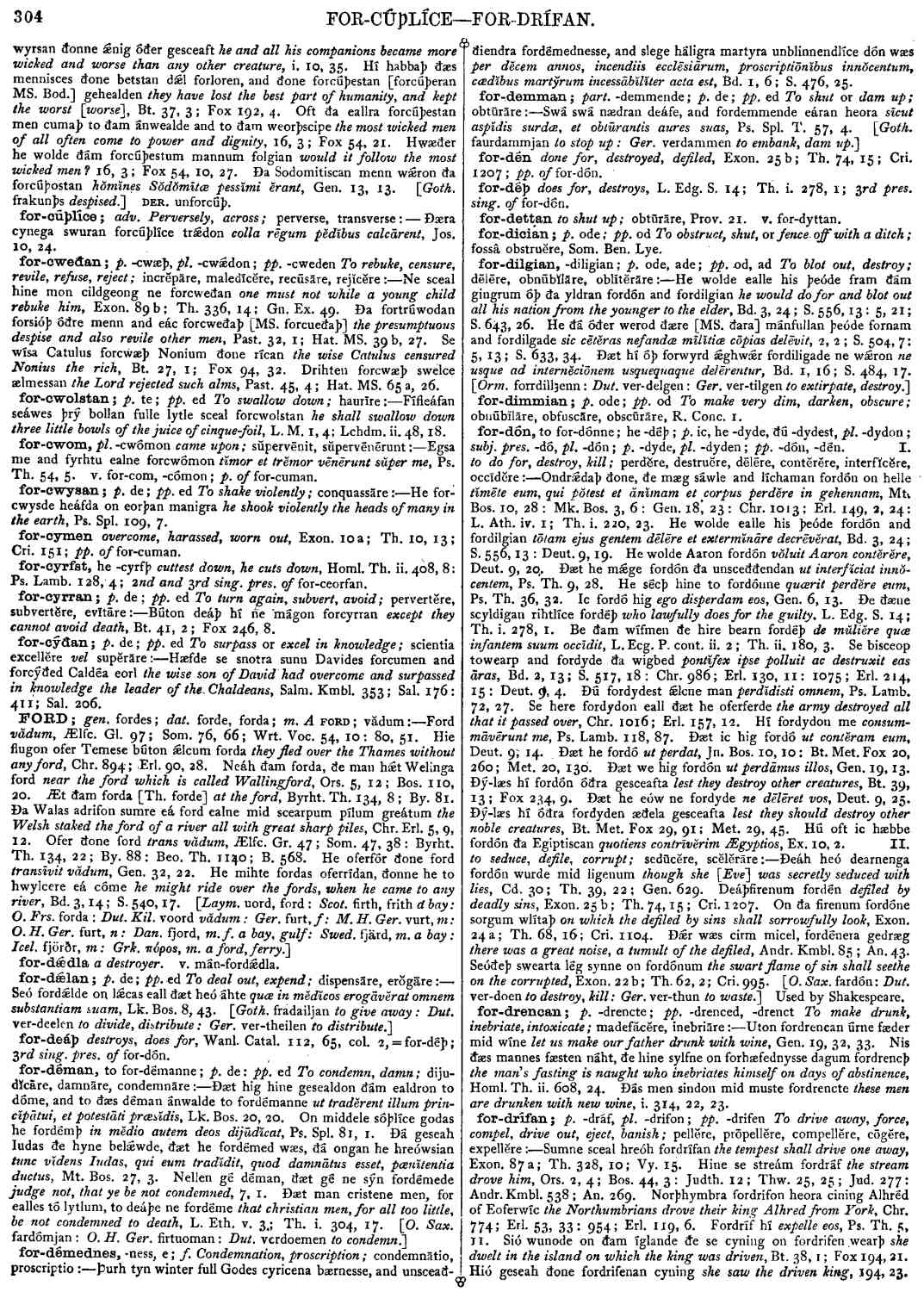FORD
- noun [ masculine ]
-
Ford
vădum,
- Ælfc. Gl. 97 ;
- Som. 76, 66 ;
- Wrt. Voc. 54, 10: 80, 51.
-
Hie flugon ofer Temese búton ǽlcum forda
they fled over the Thames without any ford,
- Chr. 894 ;
- Erl. 90, 28.
-
Neáh ðam forda, ðe man hǽt Welinga ford
near the ford which is called Wallingford,
- Ors. 5, 12 ;
- Bos. 110, 20.
-
Æt ðam forda [Th. forde]
at the ford,
- Byrht. Th. 134, 8 ;
- By. 81.
-
Ða Walas adrifon sumre eá ford ealne mid scearpum pílum greátum
the Welsh staked the ford of a river all with great sharp piles,
- Chr. Erl. 5, 9, 12.
-
Ofer ðone ford
trans vădum,
- Ælfc. Gr. 47 ;
- Som. 47, 38: Byrht. Th. 134, 22 ;
- By. 88: Beo. Th. 1140 ;
- B. 568.
-
He oferfór ðone ford
transīvit vădum,
- Gen. 32, 22.
-
He mihte fordas oferrídan, ðonne he to hwylcere eá cóme
he might ride over the fords, when he came to any river,
- Bd. 3, 14 ;
- S. 540, 17.
Bosworth, Joseph. “FORD.” In An Anglo-Saxon Dictionary Online, edited by Thomas Northcote Toller, Christ Sean, and Ondřej Tichy. Prague: Faculty of Arts, Charles University, 2014. https://bosworthtoller.com/11263.
Checked: 1